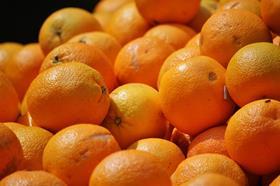
The South African citrus industry says it has and will continue to ensure that citrus is exported to key markets, despite the value chain being impacted by recent events, most critically the closure of the Durban port.
This is despite the disruption caused by last week’s violence and looting in two of South Africa’s provinces, which resulted in billions of rands worth of damage to property.
The disruption closed major routes between the northern fruit growing regions and Durban, and forced the closure of the port, coldstores and fruit handling facilities in KwaZulu Natal.
South African Citrus Growers’ Association CEO Justin Chadwick said that growers in the northern provinces of Limpopo and Mpumalanga had been diverting their fruit to other ports across the country, while citrus from other regions continued to be exported from Cape Town and Coega.
“Last week saw little impact on volumes of citrus being exported to markets including the EU, Middle East, China and the United States,' he said.
Chadwick said that in order to ensure the full recovery of the entire value chain in KwaZulu Natal, the CGA had been engaging with stakeholders in the public and private sector on a daily basis to get an update on the situational analysis on the ground and to identify any risks that are hampering the full recovery of the supply chain.
“With calm having been restored in most areas in the province, the Durban port and arterial routes and railways to the port have reopened,' he continued. 'All citrus fruit coldstorage facilities in the province are also fully secured and operational.”
While the port of Durban is receiving reefer containers, shipping delays are expected due to bottle-necks caused by last week’s shut down, which could also have a knock-on effect at ports in the Eastern and Western Cape that are reliant on reefer containers flowing from the Durban port.
‘The industry has therefore urgently called for ports to open for 24 hours to catch up on backlogs and ensure the export season continues to run smoothly.”
Traffic was also flowing on the N2 and N3, Chadwick explained, however, many truck businesses were impacted by the violence last week, which meant truck supply was stretched in the region.
“Many truckers are also only prepared to transport cargo during the day, in light of ongoing security concerns,' he noted. 'The CGA has therefore requested that South African Defence Force (SANDF) troops continue to man both highways to allow for trucks to run 24 hours a day.
“The industry has also called for SANDF troops to continue to be deployed to other key sites across the citrus value chain including Durban port, the NATCOR railway, land food distribution centres and cold stores in hotspot areas such as Hammersdale and Cato Ridge in KZN. Crucially, the safety of workers travelling to their workplaces also needs to be guaranteed.”
With food shortages still posing an immediate threat in several areas in KwaZulu Natal, the citrus industry is also engaging with government on any assistance it can provide to deliver food and necessities to communities impacted by the unrest.
“The CGA remains committed to working with government and stakeholders across the citrus value chain on a recovery plan to continue meeting market demand and to mitigate the devastating impact of the violence on the industry and the country’s economy as a whole,' Chadwick added



